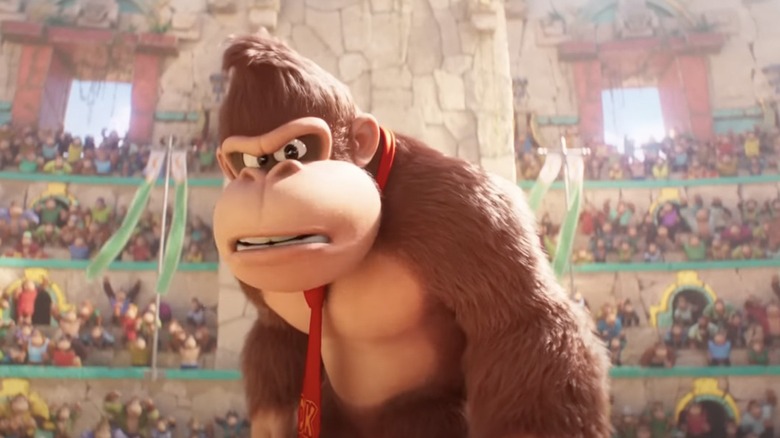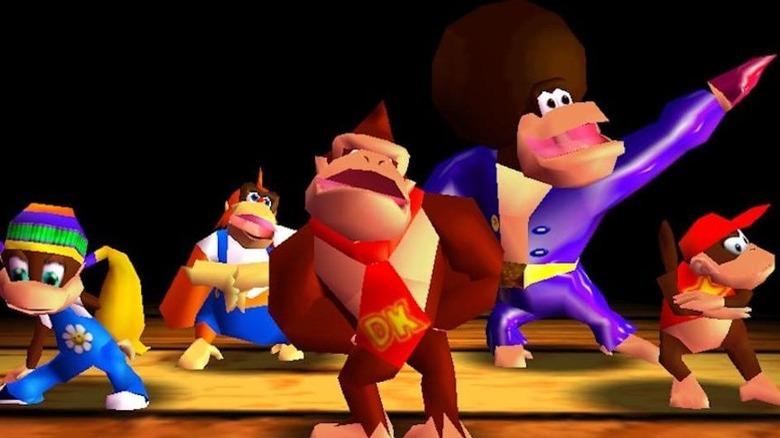The Super Mario Bros. Movie Forgot To Credit Grant Kirkhope For The DK Rap, And That's Not Okay
The references and Easter eggs in "The Super Mario Bros. Movie" may keep Mario fans satiated, but they're also a celebration of all things Nintendo. As much as Illumination's new animated film is a love letter to the illustrious video game company, its credits left out a name that made a vitally important contribution to Nintendo history. That would be Grant Kirkhope, the composer of the legendary DK Rap featured in the 1999 Nintendo 64 game "Donkey Kong 64."
The DK Rap has experienced a strange evolution from being the target of disdain to ironic enjoyment to genuine nostalgic love. Sure, it may have been annoying to hear the same record scratches and "Here-here-here- we go!" every time you popped in the yellow cartridge of "Donkey Kong 64," but once the tune inevitably wormed itself into your brain it was hard to deny its catchiness. Kirkhope had always intended the song to be a joke, but critics at the time lambasted the rap as cringey and annoying. Even while promoting his role of Donkey Kong in "The Super Mario Bros. Movie," Seth Rogan called it "objectively one of the worst rap songs of all time." Despite the backlash, the DK Rap has had quite the legacy, reappearing in the "Smash Bros." games, the rhythm game "Donkey Konga," and numerous YouTube memes.
You CAN'T join in, too
Grant Kirkhope, an active Twitter user, initially "burst with excitement" to learn that the DK Rap was going to be featured in "The Super Mario Bros. Movie." However, he expressed his disappointment when he saw that the end credits for "The Super Mario Bros. Movie" simply list "DK Rap" from "Donkey Kong 64" without any mention of him. (George Andreas, who wrote the lyrics and performed the original song, is also absent.) It's disrespectful to not give credit where credit is due, but it's also perplexing considering how readily available this information is with a simple Google search. It may have something to do with the fact that "Donkey Kong 64" exists in a weird legal realm as a game developed by British studio Rare, who Kirkhope worked for, but owned by Nintendo. Or it may, of course, just be an overlooked error.
Whatever the case, it's not the first time a Hollywood production has shunned the creators of their IP adaptations. Superhero movies are notorious for underpaying the original writers and artists responsible for specific characters and storylines. Ed Brubaker, who wrote the acclaimed "Winter Soldier" comic book arc, stated that he made more money off his blink-and-you'll-miss-it cameo in the film adaptation than any residuals from creative licensing. In fact, both Marvel and DC have faced criticism for providing measly "shut-up money" to their comic book creators. Kirkhope, however, wasn't even offered this, proof positive that if Hollywood intends to continue adapting as much licensed material as possible, then studios need to do their research and compensate the people who came up with these ideas in the first place.
"The Super Mario Bros. Movie" in now playing in theaters.

